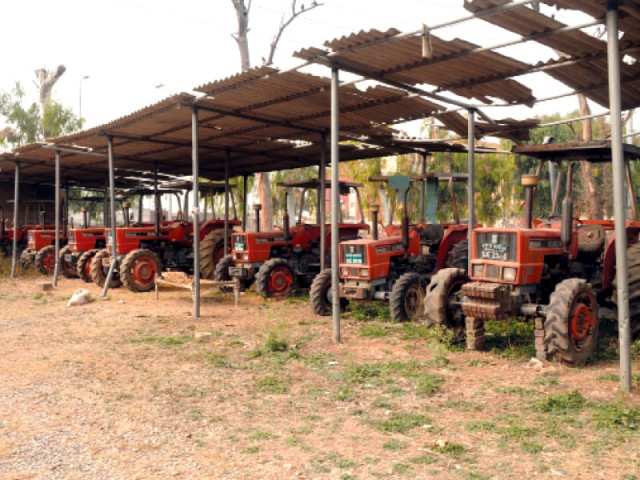Senate Standing: Committee Government mulls importing used tractors
Option comes as authorities dissatisfied with local production standards

Option comes as authorities dissatisfied with local production standards. PHOTO: WASEEM NAZIR/ EXPRESS
In a briefing to the Senate Standing Committee on National Food Security and Research, Sikandar Hayat Khan Bosan, who holds the minister’s portfolio, said local producers including Millat Tractors and Al-Ghazi Tractors were producing sub-standard products.
“The government has held many meetings with these producers, asking them to improve the quality of production but they have failed to comply,” said Bosan as he briefed the standing committee chaired by Senator Syed Muzaffar Hussain Shah.
“The government is now considering the option of importing used tractors from Belarus and other countries if local production stays below par,” he said, adding that the issue has already been taken up with the concerned quarters.
“There is also a need to break the monopoly of these local producers to improve the quality of products,” added Bosan.
Meanwhile, officials of the Zarai Taraqiati Bank Limited (ZTBL) informed the committee that as much as Rs6.87 billion had been disbursed among farmers during the current year for purchasing tractors.
They further informed the committee that the State Bank of Pakistan (SBP) had not issued any notification pertaining to the cut in interest rate on agricultural loans under the Prime Minister’s Kisan Package even after three months.
Irregularities in KSSL
The committee took note of irregularities by the management of Kisan Support Service Private Limited (KSSL) - a subsidiary organisation of ZTBL - in the appointment of over 2,000 employees without following laid-down criteria.
It expressed dismay over the unsatisfactory response of ZTBL’s senior officers and KSSL managing director over the matter.
“The committee has received more than hundred complaints about the irregularities,” said Shah. “We are hearing for the first time that the organisation is recruiting employees without giving proper advertisement in newspapers.” Shah said that it is the duty of the parliamentary oversight committee to investigate the complaints and check transparency issues.
Cotton production
Cotton Commissioner Khalid Abdullah informed the committee that almost 30% of cotton production had been lost due to climate change implications and other factors. “To fill this gap, cotton bales will have to be imported.”
Published in The Express Tribune, December 17th, 2015.
Like Business on Facebook, follow @TribuneBiz on Twitter to stay informed and join in the conversation.



















COMMENTS
Comments are moderated and generally will be posted if they are on-topic and not abusive.
For more information, please see our Comments FAQ